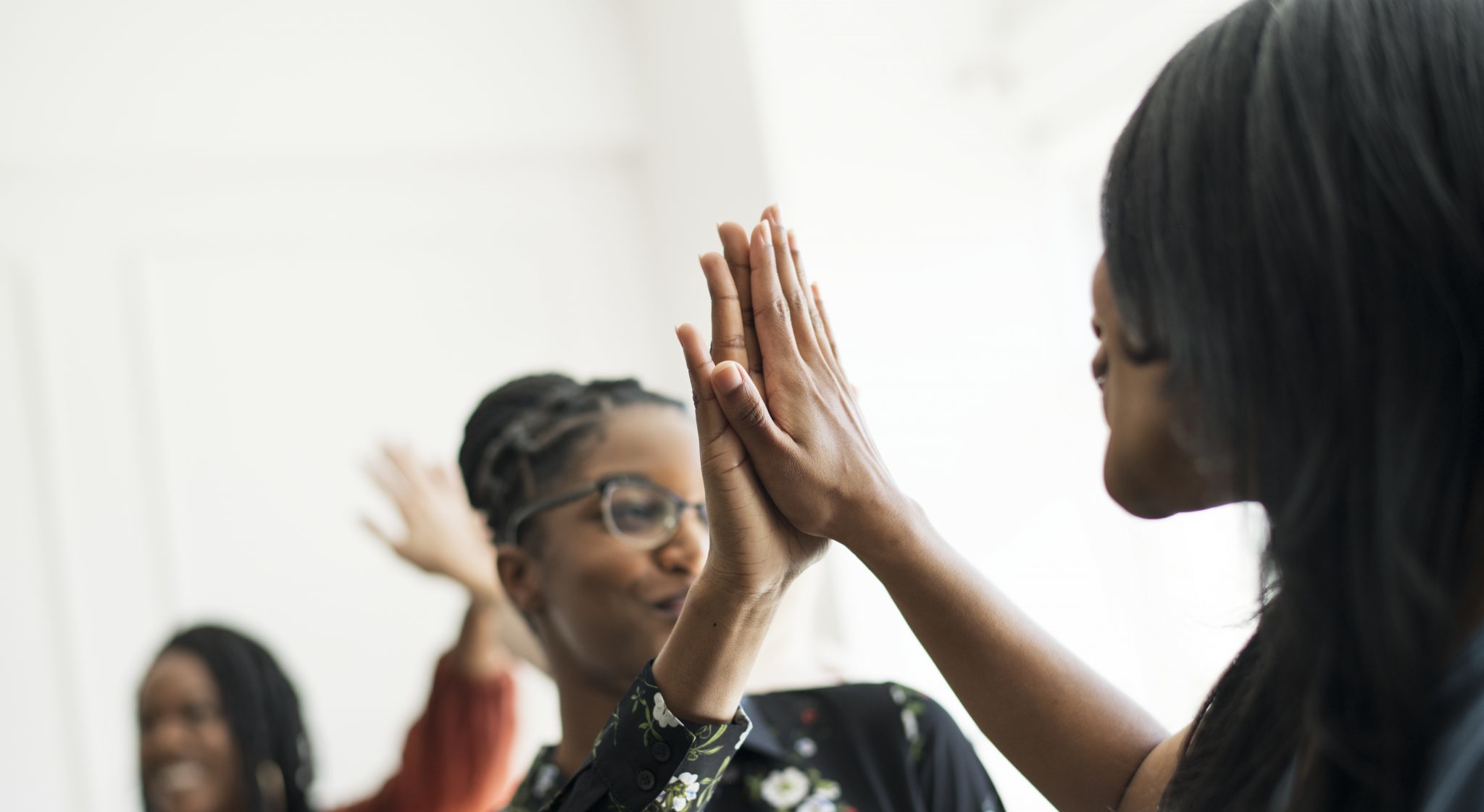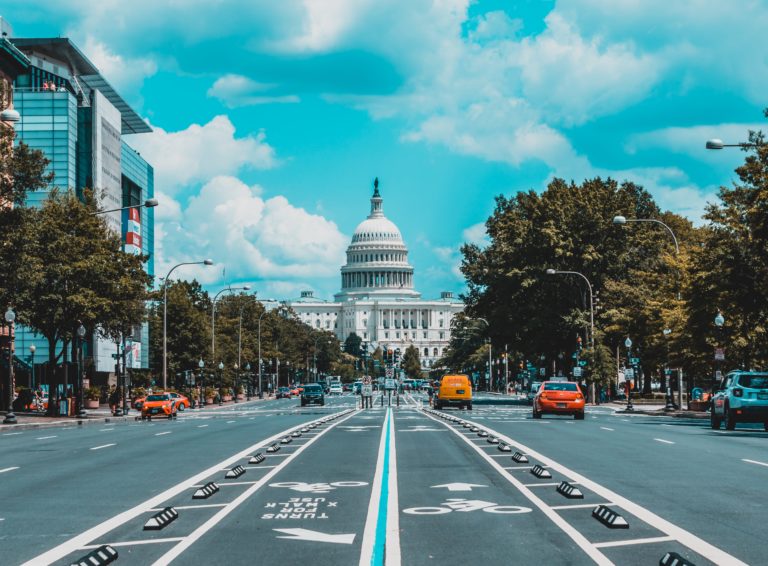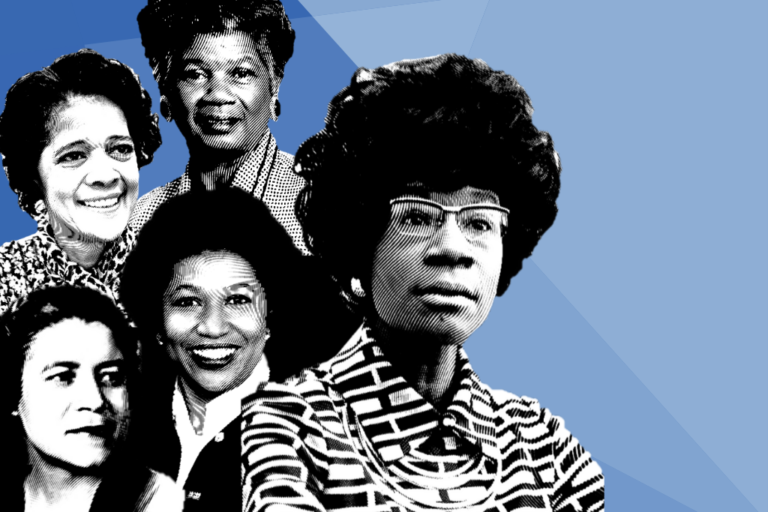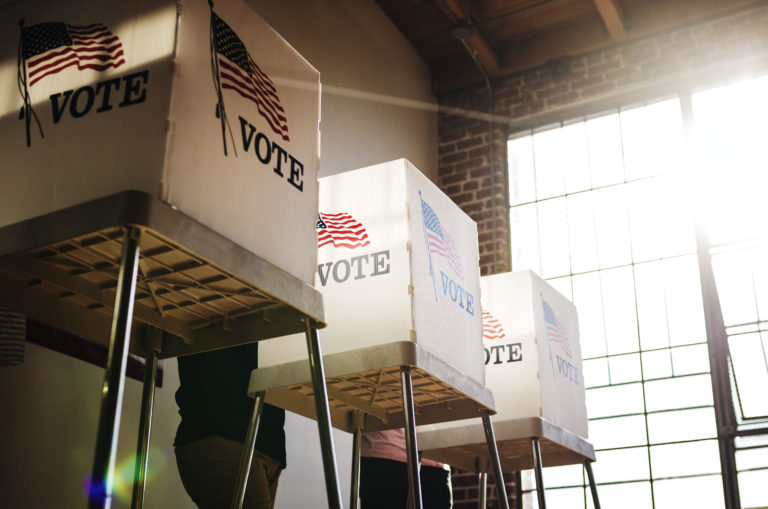A record number of Black women are running for Congress this year. At least 122…
Celebrating the Record Number of Black Women in Congress

52 years after Shirley Chisolm was the first Black woman ever elected to Congress, we now have the highest number of Black Congresswomen in history. The same year that Kamala Harris, a Black and South Asian woman, was elected as the first woman Vice President, a record number of Black women were elected to the 117th Congress: there are now 25 Black women serving as US Representatives, with two Black women serving as non-voting delegates.
Higher Heights, a group that supports Black women running for office, in collaboration with the Center for American Women and Politics, reported, “As of January 3, 2021, Black women are 4.9% of all members of Congress, 9.7% of all Democrats in Congress, 18.1% of all women in Congress, and 43.3% of Black members of Congress.” Among the incoming class of Black Congresswomen is Cori Bush, the first Black woman and first woman of color in Congress from Missouri and Marilyn Strickland, the first Black woman from Washington state elected to Congress. Although Republican women made huge strides in 2020 and made up the majority of newcomers in Congress, all of the Black women in Congress are Democrats.
The 2020 election was significant for Black women in Congress and Executive Office, yet with Vice President Harris’s ascension there is no longer any Black female representation in the US Senate. This is a glaring absence at a time when Black women have demonstrated their impactful contributions in political organizing and civic leadership. Earlier this year, former minority leader of the Georgia House of Representatives and Fair Fight founder Stacey Abrams was nominated for a Nobel Peace Prize in recognition of her work to fight voter suppression. Abrams’s nomination demonstrates that people, not only in this country but around the world, are beginning to recognize Black women’s political power.
When Kamala Harris addressed the nation in her Vice-Presidential victory speech, she took the time to honor Black women, calling them “the backbone of our democracy.” For the five past presidential elections, Black women have shown up at higher rates than any other group (90% of Black women voted for President Joe Biden, making them the strongest and most loyal voting bloc) yet have remained an unseen, or rather unacknowledged, political force. However, with national experts crediting Black women’s historic turnout and mobilization efforts with securing Biden’s victory as well as the Democrats in Georgia, the election of Vice President Harris and her public recognition of Black women’s activism, and Abrams’ Nobel Peace Prize nomination, there are signs that the tide is beginning to turn.
While we celebrate the trailblazing Black women who are making history in their roles, we acknowledge that there is still a long way to go when it comes to Black women’s representation in elected office. At the Barbara Lee Family Foundation, we know that representation matters and you can’t be what you can see. That’s why it is so important to recognize Black women in the political space, not just as reliable voters and organizers but also as the powerful leaders they are.






